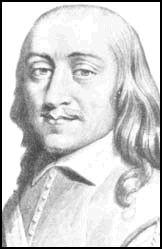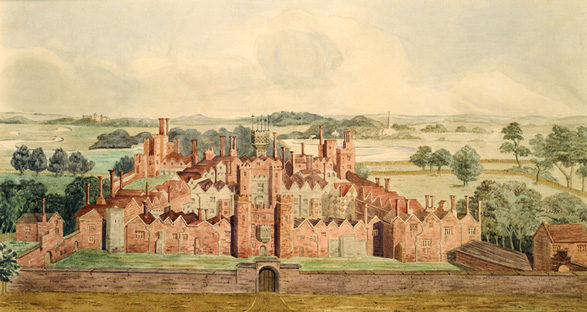|
Diggers
The Diggers were a group of religious and political dissidents in England, associated with a political ideology and programme resembling what would later be called agrarian socialism.; ; ; Gerrard Winstanley and William Everard (Digger), William Everard, amongst many others, were known as True Levellers in 1649, in reference to their split from the Levellers, and later became known as ''Diggers'' because of their attempts to farm on common land. Due to this and to their beliefs, the Diggers were driven from one county after another by the authorities. The Diggers tried (by "levelling" land (economics), land) to reform the existing social order with an agrarian lifestyle based on their ideas for the creation of small, egalitarian rural communities. They were one of a number of Nonconformist (Protestantism), nonconformist English Dissenters, dissenting groups that emerged around this time. Their belief in economic equality was drawn from , which describes a community of believe ... [...More Info...] [...Related Items...] OR: [Wikipedia] [Google] [Baidu] [Amazon] |
Gerrard Winstanley
Gerrard Winstanley (baptised 19 October 1609 – 10 September 1676) was an English Protestant religious reformer, political philosopher, and activist during the period of the Commonwealth of England. Winstanley was the leader and one of the founders of the English group known as the True Levellers or Diggers. The group occupied formerly common land that had been privatised by enclosures and dug them over, pulling down hedges and filling in ditches, to plant crops. "True Levellers" was the name they used to describe themselves, whereas the term "Diggers" was coined by contemporaries. Early life Gerrard Winstanley was baptised on 19 October 1609, the son of Edward Winstanley, mercer, and was baptised in the parish of Wigan, then part of the West Derby hundred of Lancashire. His mother's identity remains unknown and he could have been born anywhere in the parish of Wigan. The parish of Wigan contained the townships of Abram, Aspull, Billinge-and-Winstanley, Dalton, Haigh, ... [...More Info...] [...Related Items...] OR: [Wikipedia] [Google] [Baidu] [Amazon] |
William Everard (Digger)
William Everard (bap. 1602, d. in or after 1651) was an early leader of the Diggers. Biography William Everard was apprenticed on 14 August 1616 to Robert Miller of the Merchant Taylors' Company, London. He was the son of William Everad, a yeoman of Reading and had been baptized on 9 May 1602 in the parish of St Giles, Reading, as William Evered. This Everad took the Protestation Oath in the parish of St Lawrence, Reading on 20 February 1642. Less than a year later a William Everard was serving as a Parliamentary scout for Sir Samuel Luke in the Berkshire and Oxfordshire area. Hessayon speculates that he may have been captured by the Royalists as there is no record of him until May 1647 when an ensign by the name of William Everard signed a petition voicing the grievances of the army under the command of Sir Thomas Fairfax. He was cashiered out of the army in late 1647 or early 1648 for plotting to kill Charles I. In 1648 he was briefly imprisoned in Kingston, Surrey, for causi ... [...More Info...] [...Related Items...] OR: [Wikipedia] [Google] [Baidu] [Amazon] |
Levellers
The Levellers were a political movement active during the English Civil War who were committed to popular sovereignty, extended suffrage, equality before the law and religious tolerance. The hallmark of Leveller thought was its populism, as shown by its emphasis on equal natural rights, and their practice of reaching the public through pamphlets, petitions and vocal appeals to the crowd. The Levellers came to prominence at the end of the First English Civil War (1642–1646) and were most influential before the start of the Second English Civil War, Second Civil War (1648–49). Leveller views and support were found in the populace of the City of London and in some regiments in the New Model Army. Their ideas were presented in their manifesto "Agreement of the People". In contrast to the Diggers, the Levellers opposed common ownership, except in cases of mutual agreement of the property owners. They were organised at the national level, with offices in a number of London inns ... [...More Info...] [...Related Items...] OR: [Wikipedia] [Google] [Baidu] [Amazon] |
St George's Hill
St George's Hill is a private gated community in Weybridge, Surrey, England. Comprising more than 450 properties, the land that is now the contemporary St George's Hill estate was purchased by builder W. G. Tarrant in 1911. Over the following decades, Tarrant masterminded the development of St George's Hill into a country retreat for wealthy Londoners that promised both seclusion and natural beauty. St George's Hill is known for its population of celebrities and high net worth individuals, and is generally considered the most prestigious of the Surrey private estates, only rivalled by nearby Wentworth. Notable residents have included John Lennon and Ringo Starr of The Beatles, golfer Nick Faldo, and F1 racing driver Jenson Button. Geography Location St George’s Hill lies on the edge of the town of Weybridge in north Surrey, and is 23 miles southwest of central London. Its southern boundary is Byfleet Road, and its eastern side is formed of Seven Hills Road and Foxoak Hil ... [...More Info...] [...Related Items...] OR: [Wikipedia] [Google] [Baidu] [Amazon] |
Weybridge
Weybridge () is a town in the Borough of Elmbridge, Elmbridge district in Surrey, England, around southwest of central London. The settlement is recorded as ''Waigebrugge'' and ''Weibrugge'' in the 7th century and the name derives from a crossing point of the River Wey, which flows into the River Thames to the north of the town centre. The earliest evidence of human activity is from the Bronze Age. During the Anglo-Saxon and Middle Ages, medieval periods, Weybridge was held by Chertsey Abbey. In 2011 it had a population of 15,449. In the 1530s, Henry VIII constructed Oatlands Palace to the north of the town centre, which he intended to be the residence of his fourth wife, Anne of Cleves. He married Catherine Howard there in July 1540 and the palace remained a royal residence until the English Civil War, Civil War. The buildings were demolished in the early 1650s and a new mansion, Oatlands House, was constructed to the east of Weybridge later the same century. Prince Frederic ... [...More Info...] [...Related Items...] OR: [Wikipedia] [Google] [Baidu] [Amazon] |
English Dissenters
English Dissenters or English Separatists were Protestants who separated from the Church of England in the 17th and 18th centuries. English Dissenters opposed state interference in religious matters and founded their own churches, educational institutions and communities. They tended to see the established church as too Catholic, but did not agree on what should be done about it. Some Dissenters emigrated to the New World, especially to the Thirteen Colonies and Canada. Brownists founded the Plymouth Colony. The English Dissenters played a pivotal role in the religious development of the United States and greatly diversified the religious landscape. They originally agitated for a wide-reaching Protestant Reformation of the established Church of England, and they flourished during the Protectorate under Oliver Cromwell. King James I had said "no bishop, no king", emphasising the role of the clergy in justifying royal legitimacy. Cromwell capitalised on that phrase, abol ... [...More Info...] [...Related Items...] OR: [Wikipedia] [Google] [Baidu] [Amazon] |
Enclosure
Enclosure or inclosure is a term, used in English landownership, that refers to the appropriation of "waste" or "common land", enclosing it, and by doing so depriving commoners of their traditional rights of access and usage. Agreements to enclose land could be either through a formal or informal process. The process could normally be accomplished in three ways. First there was the creation of "closes", taken out of larger common fields by their owners. Secondly, there was enclosure by proprietors, owners who acted together, usually small farmers or squires, leading to the enclosure of whole parishes. Finally there were inclosure act, enclosures by acts of Parliament. The stated justification for enclosure was to improve the efficiency of agriculture. However, there were other motives too, one example being that the value of the land enclosed would be substantially increased. There were social consequences to the policy, with many protests at the removal of rights from the comm ... [...More Info...] [...Related Items...] OR: [Wikipedia] [Google] [Baidu] [Amazon] |
Cobham, Surrey
Cobham () is a large village in the Borough of Elmbridge in Surrey, England, centred south-west of London and northeast of Guildford on the River Mole, Surrey, River Mole. It has a commercial/services High Street, a significant number of primary and private schools and the Painshill Park, Painshill landscape park. Toponymy Cobham appears in Domesday Book of 1086 as ''Covenham'' and in 13th century copies of earlier charters as ''Coveham''. It is recorded as ''Cobbeham'' and ''Cobeham'' in the 15th century and the first use of the modern spelling "Cobham" is from 1570. The name is thought to derive from an Anglo-Saxon landowner either as ''Cofa's hām'' or ''Cofa's hamm''. The second part of the name may have originated from the Old English ''hām'' meaning a settlement or enclosure, or from ''hamm'' meaning land close to water. The area of the village known as Cobham Tilt, is first recorded as ''la Tilthe'' in 1328. The name is thought to derive from the Old English ''Tilth ... [...More Info...] [...Related Items...] OR: [Wikipedia] [Google] [Baidu] [Amazon] |
Agrarian Socialism
Agrarian socialism or agricultural socialism is a political ideology that promotes social ownership of agrarian and agricultural production as opposed to private ownership. Agrarian socialism involves equally distributing agricultural land among collectivized peasant villages. Many agrarian socialist movements have tended to be rural (with an emphasis on decentralization and non-state forms of collective ownership), locally focused, and traditional. Governments and political parties seeking agrarian socialist policies have existed throughout the world, in regions including Europe, Asia, North America, Latin America, Africa and Australia. Examples of agrarian socialist parties in Europe include the Socialist Revolutionary Party (the SRs). The SRs were a prominent agrarian socialist political party in early 20th-century Russia during the Russian Revolution. The SRs garnered much support among Russia's rural peasantry, who in particular supported their program of land Socialization ( ... [...More Info...] [...Related Items...] OR: [Wikipedia] [Google] [Baidu] [Amazon] |
Common Land
Common land is collective land (sometimes only open to those whose nation governs the land) in which all persons have certain common rights, such as to allow their livestock to graze upon it, to collect wood, or to cut turf for fuel. A person who has a right in, or over, common land jointly with another or others is usually called a commoner. In Great Britain, common land or former common land is usually referred to as a common; for instance, Clapham Common and Mungrisdale Common. Due to enclosure, the extent of common land is now much reduced from the hundreds of square kilometres that existed until the 17th century, but a considerable amount of common land still exists, particularly in upland areas. There are over 8,000 registered commons in England alone. Origins Originally in medieval England the common was an integral part of the manor, and was thus part of the estate held by the lord of the manor under a grant from the Crown or a superior peer (who in turn held hi ... [...More Info...] [...Related Items...] OR: [Wikipedia] [Google] [Baidu] [Amazon] |
Laurence Clarkson
Laurence Clarkson (1615 – 1667), sometimes called Claxton, born in Preston, Lancashire, was an English theologian and accused heretic. He was the most outspoken and notorious of the loose collection of radical Protestants known as the Ranters. According to Charles William Sutton, writing in the ''Dictionary of National Biography, 1885-1900'', "the name is written Clarkson in his earlier tracts and Claxton in the later ones. It was no doubt originally Clarkson. In that form, the name is still common about Preston, where it is pronounced 'Clackson'". Clarkson's ideas are set out in a 1650 tract sponsored by the wealthy Leveller military man, William Rainborowe, called ''A Single Eye''. Clarkson opposed the idea of sin, considering it to be "invented by the ruling class to keep the poor in order." He felt that only the intention of an act, and nothing at all about its content, mattered to God, so that no specific morality could be prescribed on religious bases. He considered th ... [...More Info...] [...Related Items...] OR: [Wikipedia] [Google] [Baidu] [Amazon] |
Utopian Socialism
Utopian socialism is the term often used to describe the first current of modern socialism and socialist thought as exemplified by the work of Henri de Saint-Simon, Charles Fourier, Étienne Cabet, and Robert Owen. Utopian socialism is often described as the presentation of visions and outlines for imaginary or futuristic ideal and socialist societies that pursue ideals of positive inter-personal relationships separate from capitalist mechanisms. However, later socialists such as the Marxists and the critics of socialism both disparaged utopian socialism as not being grounded in actual material conditions of existing society. Utopian socialist visions of ideal societies compete with Revolutionary socialism, revolutionary and social democratic movements. Later socialists have applied the term ''utopian socialism'' to socialists who lived in the first quarter of the 19th century. They used the term as a pejorative in order to dismiss the ideas of the earlier thinkers as fanciful a ... [...More Info...] [...Related Items...] OR: [Wikipedia] [Google] [Baidu] [Amazon] |







